Jonelle Matthews disappeared from her family's Greeley, Colorado, home more than 35 years ago. For a while, the image of the smiling 12-year-old was featured on milk cartons looking for missing children. But the case went cold.
The only physical evidence found by police was a stranger's shoeprints left in the snow – footprints someone tried to cover up using a garden rake. The case drew national attention.
"The police … were working like hell to get this case cleared," Greeley Mayor John Gates, a police officer at the time of Jonelle's disappearance tells "48 Hours."
In July 2019, a crew digging a pipeline discovered human remains, the victim of a gunshot. The coroner confirmed it was Jonelle.
"I didn't want that to be Jonelle," her mother Gloria Matthews tells "48 Hours" correspondent Richard Schlesinger. "I really wanted to not know."
The discovery of Jonelle's body was not the end of the story. Instead, the investigation went into a shocking new direction.
More than three decades after Jonelle's disappearance, one-time Idaho gubernatorial candidate and former Greeley resident Steven Dana Pankey became a person of interest in the case.
Pankey has publicly said he never met Jonelle Matthews. Yet, his indictment points to repeated statements implicating Pankey – made by Pankey. He allegedly volunteered, without being asked, what he claimed were details about when Matthews died. He also drew up a list of persons of interest with his name on it, according to the indictment.
Pankey has been charged with Jonelle's murder and will stand trial in July. He pleaded not guilty. "He's a talkative guy," says Anthony Viorst, Pankey's attorney. "But he's not a murderer."
Instead, says Viorst, Pankey craves attention. "Mr. Pankey wanted to be a person of interest," Viorst says. "Mr. Pankey could have laid low. … Nobody would have charged him. … Mr. Pankey loves the limelight."
WHERE IS JONELLE?
Jonelle Matthews' friends Darla Jentzsch and Deanna Ross remember growing up with Jonelle in the small Colorado city of Greeley.
Darla Jentzsch: We all lived with our front doors open.
Deanna Ross: We rode our bikes a lot around town. … We had sleepovers, birthday parties. We just had a big group of friends.
It's the kind of town realtors like to call "a great place to raise kids."
Darla Jentzsch: I'm so fortunate that we were neighbors.
But in December of 1984, just five days before Christmas, Greeley learned it could not hide from evil.
LOCAL NEWS REPORT: 12-year-old Jonelle Matthews disappeared from her Greeley home. … It's believed she's the victim of a kidnapping.
Darla Jentzsch: It was such a mystery, this whole thing happened.
Just like that, Darla lost her childhood friend.
Richard Schlesinger: Do you remember being afraid?
Darla Jentzsch: Oh, yeah. I remember being afraid.
Deanna Ross: As a community, it rocked Greeley.
LOCAL NEWS REPORT: Jonelle Matthews will turn 13 in two weeks. No one knows where she'll spend her birthday.
Richard Schlesinger: You'd be the last people to whom something like this would happen, I would think.
Jim Matthews: Mmm.
Gloria Matthews: Yeah.
Jim and Gloria Matthews had moved to Greeley just six years earlier, to raise their young daughters Jennifer and Jonelle.
Jennifer Mogensen: We were happy.
Richard Schlesinger: Were you a close family?
Jim Matthews: Definitely. … Gloria was working at a restaurant. And I was an elementary principal. … We were very involved in our church. And we just had a very full life.
At least they did until that night — December 20. That's when Jonelle went to sing in a school choir concert.
Jim Matthews: She was interested in any kind of performing thing.
Afterwards she got a ride home with Deanna Ross and Deanna's father. That was about 8 p.m.
Deanna Ross: Jonelle needed a ride home … so she hopped in our truck and we took her home. … My dad waited until he saw her flick on the light. That was our sign that she made it inside and everything's fine.
Richard Schlesinger: And you drove off thinking what?
Deanna Ross: That I'd see her the next day, at school.
Jim Matthews: I came home by myself.
Jim Matthews recalls arriving home at about 9:30 p.m. and found that his daughter wasn't there.
Richard Schlesinger: Did it occur to you that maybe she … had run away?
Jim Matthews: No, because I know my daughter well enough that number one, it's Christmas time. She loves presents. She just loves the whole festivities of Christmas.
At first he thought Jonelle was at a friend's house, but after calling around and waiting about a half hour to an hour, Jim says he called police.
Jim Matthews: They sent two or three detectives out and started searching the house for clues.
Mayor John Gates: I remember that night like it was yesterday.
Greeley's Mayor John Gates was 27 years old at the time and a police officer. He was called to the scene.
Mayor John Gates: My assignment that night … was … going around the neighborhood, knocking on doors … asking them if they had seen or heard anything suspicious that evening.
No one had seen or heard anything — and the Matthews home, which was now a crime scene, offered few clues. There was a note from Jonelle, but it was just a phone message she had taken for her father shortly before she vanished.
The only physical evidence were those footprints in the fresh snow. They were found just outside the house. And there was something odd about them.
Jim Matthews: Whoever did it, tried to rake their footprints.
Richard Schlesinger: And he was using, what, a garden rake?
Jim Matthews: Yeah, right out of my garage.
Richard Schlesinger: Oh, to cover them up.
Jim Matthews: Yeah, yeah.
Richard Schlesinger: Peculiar, huh?
Jim Matthews: [laughs] Yes.
There were no fingerprints and if there was DNA, law enforcement was still several years from being able to analyze it. With nothing else to go on, investigators focused on Jim Matthews himself.
Richard Schlesinger: What was it like for you to be considered a suspect in your daughter's disappearance?
Jim Matthews: For the longest time I knew exactly what they were doing, and I respected it.
He even agreed to a lie detector test, with an FBI agent.
Jim Matthews: The number one interrogator west of the Mississippi.
Jim says the agent told him he failed.
Jim Matthews: I just kept telling him, I said, "Listen, I'm telling you the truth. I'm telling you everything I know." Then they had another one with the local police. That's when I started losing it. I said listen, "I have been very honest, I've been accessible to you any time you wanted, but I'm getting sick of this because I am innocent."
Jim was eventually cleared, leaving no suspects or leads. A group of Greeley residents worked hard to keep Jonelle's story alive.
Jim Matthews: The Rescue Jonelle Committee … made all kinds of things happen.
They made headlines. Jonelle became one of the first missing children whose photo appeared on milk cartons across America.
And even President Ronald Reagan got involved. He mentioned Jonelle in a speech about missing children.
PRESIDENT RONALD REAGAN [March 7, 1985]: I learned about Jonelle Matthews of Greeley, Colorado. … five days before Christmas, Jonelle disappeared from her home.
But Jonelle's family and friends could only attract that kind of attention for so long. With no real evidence of what happened to the 12-year-old, the case went cold. But Jonelle was far from forgotten.
Gloria Matthews: Everywhere we went I was always looking for her … I always had hope that I would find her. … in my dreams she always came home. You know, she always came home.
But in reality, there was no sign of Jonelle.
LOCAL NEWS REPORT: A major development to tell you about in a mystery that is more than three decades old.
And then on July 23, 2019, nearly 35 years after Jonelle's disappearance, police finally had that breaking news to share.
Jennifer Mogensen: Wow.
Deanna Ross: It was a complete shock.
A crew digging a pipeline in a remote stretch of land just southeast of Greeley had discovered human remains with a gunshot wound to the head.
Mayor John Gates: They were confirmed by the coroner to be those of Jonelle Matthews.
It was agony for Jonelle's mother Gloria, who could no longer hope her daughter would come home.
Gloria Matthews: We are going to know that she was murdered [crying].
The question was, who killed Jonelle?
STEVE PANKEY [to KMVT]: I heard that a girl was missing from Greeley, Colorado.
Police might have been closer to an answer than they knew.
STEVE PANKEY [to KMVT]: I lived in Greeley, Colorado, from 1973 …
Steve Pankey was once a candidate for governor of Idaho.
STEVE PANKEY [Idaho Statesman political ad]: I'm one of the people who wants to represent you.
He was a person who sure was interested in the case. And made himself a person of interest.
STEVE PANKEY [to KMVT]: I contacted the FBI.
STEVE PANKEY [to KMVT]: I knew more than I wanted to know, OK.
STEVE PANKEY [to KMVT]: I told the FBI I want to talk to you. It may or may not have something to do with the Jonelle Matthews case.
COLD CASE HEATS UP
In September 2019, just weeks after discovering the remains of 12-year-old Jonelle Matthews, the case that had been so cold for so long quickly heated up. Authorities searched a home in Twin Falls, Idaho.
STEVE PANKEY [to KMVT]: They've got full SWAT gear on. They've got rifles and they're pointing them at me.
It belonged to Steven Pankey.
In a matter of days, the search was all over the news, but not because police were talking.
STEVE PANKEY [to KMVT]: Don't spit in my face. Don't accuse me …
It was Steven Pankey who started talking — to just about anyone who would listen, including CBS affiliate KMVT.
STEVE PANKEY [to KMVT]: I've never met Jonelle Matthews … I've never met anybody in her family ...
STEVE PANKEY [to KMVT]: Make sure the viewers hear that … I voluntarily gave my DNA. I offered to take a polygraph.
Police won't directly confirm any of that.
Kelly Werthmann is a reporter and anchor for Denver's CBS station, KCNC. She also interviewed Pankey over FaceTime.
STEVE PANKEY [to Werthmann]: If I gave my DNA, that would be kinda like a knockout blow …
Kelly Werthmann: He really wanted to make himself clear that he was framed.
KELLY WERTHMANN: Did you kill Jonelle Matthews?
STEVE PANKEY: [Laughs] Absolutely not.
"48 Hours" tried to get our own interview with Pankey.
Richard Schlesinger: Would you let us talk to your client?
Anthony Viorst: No. I will not.
But by then, defense attorney Anthony Viorst had silenced his chatty new client.
Anthony Viorst: Mr. Pankey likes to talk. He does. … to some extent, we're going to just have to face that.
Jonelle's father Jim says the fast-breaking news about Pankey surprised him.
Jim Matthews: We had never heard the name Steve Pankey. … We were totally clueless about this guy.
But as it turns out, when Jonelle vanished in 1984, Pankey lived in Greeley — about two miles from the Matthew home.
STEVE PANKEY [to KMVT]: At the time I was married. And … I had a 5-year-old son.
Greeley was much smaller then and Pankey was known around town.
Mayor John Gates: I had met him in about the mid-1970s.
Richard Schlesinger: You remember that?
Mayor John Gates: I do. Yeah, he worked for my father. … So, I remember meeting him.
Greeley Mayor and former police officer John Gates knew Steven Pankey, and says he was not considered a person of interest in the early days when Jonelle first disappeared.
Richard Schlesinger: Was Pankey questioned at all in the early days of this investigation?
Mayor John Gates: Not to my knowledge.
Anthony Viorst says his client has an alibi.
Richard Schlesinger: Where was he the night Jonelle Matthews disappeared?
Anthony Viorst: He was at home that night with his wife and child.
Pankey says the morning after Jonelle disappeared, he and his family left Greeley for five days.
STEVE PANKEY [to KMVT]: We went to California to be with my parents for Christmas.
STEVE PANKEY [to KMVT]: On the 26th we were driving back. And I heard on the car radio that a girl was missing from Greeley, Colorado. … of course, you know, you think that's terrible, but lots of kids go missing, you know.
That's what he says he thought at first, but a month after Jonelle's disappearance, Pankey suddenly inserted himself directly into the middle of this case and volunteered some information about Jonelle's disappearance.
STEVE PANKEY [to KMVT]: I contacted the Fort Collins FBI office. I said … "I want to talk to you. It may or may not have something to do with the Jonelle Matthews case."
Steve Pankey claims that seven days after Jonelle disappeared, his father-in-law — a groundskeeper at a Greeley cemetery — shared some disturbing information.
STEVE PANKEY [to KMVT]: He told me that a cop had contacted him and said that he had a body he wanted to be buried.
Pankey told KMVT that he shared the information with the FBI, because he feared that somehow someone might be trying to implicate him in Jonelle's murder.
STEVE PANKEY [to KMVT]: I want to at least be on record that I talked to you, so I don't get possibly an obstruction of justice charge.
It's a wild sounding story and "48 Hours" can't confirm it or even that he went to the FBI, but law enforcement records show that Pankey had other unrelated run-ins with Greeley police. They describe mostly minor and non-violent allegations, like creating a nuisance and harassment. In fact, the day before Jonelle disappeared, Pankey was arrested at a bank for harassment and criminal trespass.
Anthony Viorst: He argued with a bank teller and the police were called.
The police and court records of what happened with the charges are no longer public.
Anthony Viorst: The kind of thing that's happened to Mr. Pankey over the years. He's had periodic sort of spats with people because he is an irascible, prickly guy.
But police clearly think it's more than that and seem to be looking closely at Pankey's past — possibly including a case from 1977, when a 26-year-old Pankey was charged with sexually assaulting a woman he met in church.
In a four-hour episode of the "Unfound" podcast recorded in November 2019, Pankey claims he was dating his accuser.
STEVE PANKEY ["Unfound" podcast]: In 1977, I was a youth pastor at the … church.
STEVE PANKEY ["Unfound" podcast]: She was 23 years old.
Anthony Viorst: There was a sexual encounter. And she later said it was nonconsensual.
The woman eventually asked that the case be dismissed. But Pankey's lawyer says prosecutors will try to use it to make his client look like a person who's capable of murder.
Anthony Viorst: It has nothing to do with this case. Nothing. … he's a firm adherent to the Ten Commandments, which include thou shalt not kill.
But Jim Matthews, who joined that same church not long after Pankey left, says there's another commandment Pankey seems to be having trouble with: thou shalt not bear false witness.
Jim Matthews: He was not a youth worker at our church. He was the janitor.
Richard Schlesinger: Does it have a bearing on this case?
Jim Matthews: I think it does.
Richard Schlesinger: Yeah.
Jim Matthews: Yes.
Richard Schlesinger: Do you believe that he was a threat to children in that church?
Gloria Matthews: We don't know.
But Anthony Viorst says he isn't worried.
Anthony Viorst: There's no physical evidence whatsoever to connect Mr. Pankey to this crime. Zero physical evidence, OK?
John Gates knows the evidence is circumstantial, but he believes it is as strong as it is strange.
Mayor John Gates: This is … some of the most bizarre stuff I've ever heard, and I've been around the block.
THE SERIAL POLITICAL CANDIDATE
About two years after 12-year-old Jonelle Matthews vanished from her home in Greeley, Colorado, her family made the painful decision to pack up and leave town.
Jim Matthews: You have to go on with life. You can't let this consume you.
Around that same time, Steve Pankey, his young son and his wife, who was pregnant with their second son, also left Greeley.
STEVE PANKEY ["Unfound" podcast]: I wanted to move away …
In that podcast interview from November 2019, Pankey said they moved primarily because of Jonelle's disappearance.
STEVE PANKEY ["Unfound" podcast]: There's somebody out there who's done this to kids. So, I didn't feel overly safe with my kids there.
The Pankey family bounced around from state to state for a while. In 1989 they settled in Idaho, but Pankey admits he could not stop thinking about Jonelle.
STEVE PANKEY [to KMVT]: It would be in the back of my mind about this case … so I called … the guy who lived next door … I just asked, did they ever resolve that Jonelle Matthews thing? And he said, no, not to his knowledge.
But Pankey might have been more than just curious. In 1999 he told the Idaho Supreme Court, after a conviction for once again causing a scene in a bank, that the conviction — which was dismissed years later — was in part an "attempt to force" him "to become an informant" in Jonelle's disappearance. He also wrote that he feared he might "get the death penalty for revealing the location of" her body.
Richard Schlesinger: See, that's weird. I mean, why would he say that if he didn't know where Jonelle Matthews was buried?
Anthony Viorst: Well, here's what I'll say, Richard. I agree with you that it's weird … It just makes zero sense. It's just — he is a strange guy. … and we submit that … he never knew where the body was because he didn't do this.
But over the years there was even more strange behavior, moments that, authorities believe add up to circumstantial evidence.
Richard Schlesinger: What did you think of him? How did he seem to you?
Kevin Schneider: Very odd.
Kevin Schneider says he met the Pankey family when they first moved to Idaho. His son was friends with Pankey's son, Mark.
Richard Schlesinger: Did your son ever see any unusual things at the Pankey house when he was over there?
Kevin Schneider: Yes, he did. One time, I guess their family dog was doing a lot of barking, and it was irritating Steven. And he took duct tape and wrapped it around the dog's muzzle.
Richard Schlesinger: Ohh.
Pankey denies he ever did that, but Kevin says Pankey's son Mark was so unhappy living at home that the Schneiders took him in for about six years.
Richard Schlesinger: Why was he living with you?
Kevin Schneider: He couldn't take his dad.
In 2001 Pankey's wife filed for divorce, and he moved to Shoshone, Idaho, where in 2004 without any experience with law enforcement, other than being arrested, he ran for sheriff.
He lost, but Pankey still wanted to be sheriff somewhere. In 2008, he thought about running in Twin Falls, where he went to church with Ryan Horsley, a political consultant.
Ryan Horsley: I was kind of confused because our local sheriff actually went to our church.
Richard Schlesinger: He wanted to run against … a fellow church member?
Ryan Horsley: Yeah. … it just seemed really weird that he didn't have a grievance against our local sheriff … it just seemed like he was just running just to run.
Pankey might have thought better about running in Twin Falls. In 2008, he ran for sheriff in Shoshone once again. And, once again, he didn't come close to winning. But his political ambitions grew, and he became a serial candidate.
Ryan Horsley: He's ran for lieutenant governor once. … he's ran for governor two times. … And one of the times he ran for governor was a real dumpster fire.
Richard Schlesinger: What made that campaign a dumpster fire?
Ryan Horsley: He ran under the Constitutional Party. … at their state convention, he claimed that they tried to do an exorcism on him.
Richard Schlesinger: I'm sorry, did you say an exorcism?
Ryan Horsley: Yes.
Richard Schlesinger: I know that you're a politician and not a priest, but did he seem in need of an exorcism?
Ryan Horsley: It just seemed strange. I was just kind of glued to the headlines this whole time on just his stories — that they just didn't make sense.
For the record, the Constitution Party denies Pankey or anyone else was exorcised — at least by them. In 2018, Pankey made a second attempt at becoming governor and to no one's surprise, he lost. Ryan Horsley says that's when Pankey started collecting guns.
Ryan Horsley: … out of the blue he began, um, purchasing firearms … and later found out that Greeley Police Department had been contacting him regarding this murder investigation.
And six weeks after Jonelle's remains were discovered, authorities were at Pankey's front door with a search warrant.
STEVE PANKEY [to KMVT]: They searched this place, they took my laptop …
Pankey had an interesting next move: he ran for sheriff again.
Ryan Horsley: I think that was his last-ditch effort, honestly.
Richard Schlesinger: To do what?
Ryan Horsley: To halt any investigation, to halt him getting arrested.
It didn't work.
DA MICHAEL ROURKE [to reporters]: It is with great honor today that we announce that the grand jury indicted an individual named Steven Dana Pankey for the kidnapping and murder of Jonelle Matthews.
On October 12, 2020, police arrested Steven Pankey for kidnapping and first-degree murder.
CHIEF MARK JONES [to reporters]: To the Matthews family, I pray that this news brings you some closure and hope as we continue to pursue justice for Jonelle and your family.
But defense attorney Anthony Viorst says he's not worried, because he says the case against his client is just a weak and circumstantial collection of strange behaviors.
Anthony Viorst: I don't like to divulge my defense, you know, on national television … but I don't think it's going to be any surprise when I tell you that they've got no motive whatsoever for this crime … there's absolutely no indication Mr. Pankey knew this girl … knew where she lived … had any desire to kill her.
But the district attorney's office is ready for trial.
DA MICHAEL ROURKE [to reporters]: The indictment that I have referred to was unsealed just a little while ago.
It's an eight-page document that lays out what the prosecutors believe is their best case against Steven Pankey.
THE CASE AGAINST STEVE PANKEY
In August 2019, after nearly 35 years of agonizing over the mysterious disappearance of their daughter Jonelle, Gloria and Jim Matthews were finally able to lay her to rest.
Jim Matthews: We knew that we wanted to give her a dignified burial and, which she so richly deserved. … When you start pouring dirt into the grave and then watch the casket go down. … I'm not a real emotional person. But boy, just the floodgates opened up for both of us.
A little more than a year later, a grand jury handed down the indictment against Steven Dana Pankey, charging that he "took Jonelle Matthews from her family home … without her consent and against her will …" and "… shot Jonelle Matthews during the course of the kidnapping."
Anthony Viorst | Pankey's defense attorney: Nobody ever reported a shot fired in the neighborhood.
Richard Schlesinger: They say that he owned a gun in 1984, that he lived within a few miles of Jonelle Matthews, and that he lived within 10 miles of where her body was found. What do you make of those things?
Anthony Viorst: Well, you probably just described … 20 or 30,000 men in — in the Greeley metropolitan area. … And the place where the body was found was … in a very remote location that he had no connection to.
The indictment cites several examples where Pankey "Intentionally inserted himself in the investigation." Including a document filed as part of his own divorce in 2003, where, for reasons that are clear only to Pankey, he wrote that Jonelle's family should be told she "died before crossing 10th st. [sic]" That's close to where her choir concert was held the night she vanished.
Anthony Viorst: That's just, you know, pulled out of thin air. I mean, it's not true. It's not based on anything.
Richard Schlesinger: He's just making this stuff up to be involved in the case.
Anthony Viorst: Yeah.
He also advised "not to give the family hope."
Richard Schlesinger: Why would he interject himself into the case?
Anthony Viorst: I can't answer that because I can't get into his head, but I do think, again, it's a combination of sort of obsessive-compulsive behavior and, you know, perhaps even mental illness.
Richard Schlesinger: If you're right, they've fallen for the claims of a mentally ill person. These are trained police officers. I mean, why would they do that?
Anthony Viorst: I'm not sure that they, they know or believe that he's mentally ill. … I don't think they have a lot of training in mental illness.
Richard Schlesinger: Isn't the simpler explanation possibly that he is explaining what he did and why he did it?
Anthony Viorst: I suppose that would be the prosecution's position. … but nothing he's ever said actually implicates him in the murder.
Greeley's Mayor John Gates, strongly disagrees.
Mayor John Gates: The most strong evidence to me is the way Mr. Pankey conducted himself from the time this happened up until his indictment.
STEVE PANKEY [to KMVT]: I've never said I did it….
Mayor John Gates: The bucket of bizarre means a lot to me.
STEVE PANKEY [to KMVT]: I knew more than I wanted to know, OK?
Mayor John Gates: It builds a really, really strong circumstantial case, in my mind.
Richard Schlesinger: Reach into that bucket of bizarre, would you, Mr. Mayor, and pull out for me the most bizarre thing.
Mayor John Gates: Well, he knew her.
Pankey has always insisted that he didn't know Jonelle.
STEVE PANKEY [to KMVT]: I've never met Jonelle Matthews. Never met her, never talked to her.
But the indictment suggests that he might have, because he "demonstrated intimate familiarity with the neighborhood where Jonelle Matthews lived." And it says he "watched school children walk home" from Jonelle's middle school. Then, there's that Pankey family trip to California right after Jonelle disappeared.
Mayor John Gates: I read that his wife found that to be bizarre.
According to the indictment, his ex-wife had a lot to say about that.
Mayor John Gates: She said that it was sudden, very sudden and unplanned.
Richard Schlesinger: Was that trip planned?
Anthony Viorst: Yes.
Richard Schlesinger: His ex-wife says it was unplanned. It came up out of nowhere and they just went.
Anthony Viorst: I'm aware of that.
Richard Schlesinger: How do you decide who to believe there?
Anthony Viorst: Well, I believe my client.
According to the indictment, Pankey's ex-wife also told authorities that, on the way back to Greeley, he "uncharacteristically listened to the radio searching for news accounts of Jonelle's disappearance." And the indictment, while stingy on details, says she described Pankey digging in their yard when they got back home.
Richard Schlesinger: What's that all about, do you think?
Anthony Viorst: I don't know. Here's what I'll say about that, all right? And again, I'm giving you way too much information because … the prosecution's going to know my every move when this case goes to trial, but … I'm fairly certain that the Greeley Police Department went back to that yard and looked in it and they didn't find anything.
Police aren't talking about the case. But Kevin Schneider, who knew Pankey in Idaho, says he also knew Pankey's ex-wife pretty well, and believes her account of what happened.
Kevin Schneider: I do. I do believe it a hundred percent. And she would be the star witness for the prosecution, I would think.
Richard Schlesinger: And why is that?
Kevin Schneider: Because she lived with him forever.
Anthony Viorst: I can't tell you whether she's being untruthful or just wrong. … I don't want to impugn her character at this point in time. But … we certainly think she's at the very least wrong.
Richard Schlesinger: The prosecution could argue that he was getting out of town to avoid being questioned. Sudden trip to California. Gettin' out of dodge.
Anthony Viorst: The prosecution could argue that, Richard, I agree. … he was never a suspect, until he sort of interjected himself into this case.
And, for whatever reason, the perhaps overly verbose Pankey kept drawing attention to himself even as the police were closing in.
KELLY WERTHMANN [KMVT report]: Pankey says he went to reporters in Idaho because he wanted to be transparent.
At one point in 2019, about a month after police searched his home, he sent local media outlets a statement that included a list of people police might consider "persons of interest." And he put his own name on it, while still insisting he's innocent.
Anthony Viorst: Mr. Pankey wanted to be a person of interest. I mean, Mr. Pankey could have laid low. Nobody would have ever talked to him. Nobody would have ever charged him.
Pankey's list of persons of interest had another interesting name on it.
Mayor John Gates: He was a bit fixated on implicating me as well.
Greeley's mayor, John Gates, who says Pankey accused him of trying to set him up and not just for Jonelle Matthews' murder.
Mayor John Gates: There was a further mention that in 1993 I had convinced the Sun Valley, Idaho, Police Department that Pankey was the Golden State Killer.
Richard Schlesinger: In California?
Mayor John Gates: Yes.
Richard Schlesinger: And had you?
Mayor John Gates: No.
Anthony Viorst says that's just more proof that his client is merely obsessed with true crime … although not in a healthy way.
Anthony Viorst: Mr. Pankey loves the limelight. He just does, for whatever reason.
Richard Schlesinger: It's a hell of a way to get the limelight, isn't it?
Anthony Viorst: It's not a good way. … I wouldn't recommend it to anyone. … It was all well and good, I suppose, until he actually got charged.
But there is one piece of evidence mentioned in the indictment that could prove especially challenging for Viorst and his loquacious client. It's those footprints in the snow found outside Jonelle's house the night she vanished.
Richard Schlesinger: Why is it so suspicious that he knew about a rake?
WHAT STEVE PANKEY KNEW
When Jonelle Matthews first disappeared, investigators had only one piece of physical evidence — those footprints in the snow outside the Matthews home that somebody, possibly her abductor, had tried to conceal by using a garden rake.
Jim Matthews: He would rake the — where he had been, and then he could get to the landing where … he could walk up to the steps to the kitchen.
Only the Matthews family, investigators and presumably the killer knew about those raked over footprints. And that is what made a 2019 conversation that investigators had with Steven Pankey so interesting.
Richard Schlesinger: He mentioned rake.
Mayor John Gates: He did.
Richard Schlesinger: Is there any way he would have known about that?
Mayor John Gates: To my knowledge, no.
But the indictment says Pankey knew of and discussed a crucial piece of evidence from the Matthews house withheld from the public by law enforcement: specifically, a rake was used to obliterate shoe impressions in the snow.
Mayor John Gates: I guess the moral of the story is if you're involved in criminal activity and you talk about it, eventually you're gonna say something that crosses that line into an area that you shouldn't know if you weren't involved.
Anthony Viorst: That is arguably the one piece of evidence that arguably ties Mr. Pankey to the crime.
Richard Schlesinger: Arguably? They never released the information about the rake.
Anthony Viorst: So, here's what I'll say. … I can't tell you everything that I know … Because I have attorney-client privilege and I'm still in the process of preparing the defense of my client, all right? But suffice it to say that we have reason to believe that that information was divulged to him, um, to Mr. Pankey.
Richard Schlesinger: By whom?
Anthony Viorst: Again, that's — at this point, I'm not at liberty to say. … Well, I'll tell you what — strike that.
Anthony Viorst: I will say. By law enforcement. It's our position that it was divulged by law enforcement. All right?
Richard Schlesinger: By the police.
Anthony Viorst: Yeah, they told him. All right?
Richard Schlesinger: Do you know a name, a specific officer?
Anthony Viorst: I don't.
Richard Schlesinger: But you know it was the police?
Anthony Viorst: That's my understanding.
The police refused to say anything about what Viorst charges.
But if much of what Pankey has said over the years has complicated his defense, a few things he's done could well help. Remember, he says he willingly gave authorities his DNA.
STEVE PANKEY [to KMVT]: I gave it up front, I offered to take a polygraph test, I offered to take a voice stress test. I suggested that they impanel a grand jury and have me testify under oath.
Police aren't saying much about what Pankey offered them, but District Attorney Michael Rourke did say something about the DNA that might encourage the defense.
DA Michael Rourke [to reporters]: What I can say is there is no definitive link DNA-wise between the defendant and Jonelle Matthews' remains.
Pankey is in jail now, unable to post a $5 million bond. On February 3, 2021, he entered his plea to all the charges.
ANTHONY VIORST [in court]: Your honor at this time on behalf of Mr. Pankey, we plead not guilty.
And now both sides are preparing for trial.
Richard Schlesinger: What's your impression of the case against your client?
Anthony Viorst: You know, they really don't have one. … the only reason, really, that my client was charged is because he voluntarily interjected himself into the investigation.
Richard Schlesinger: Do you think he wanted to get charged?
Anthony Viorst: Well … I think to some extent, Mr. Pankey likes the limelight so much that he's enjoying being charged. Yeah.
It could be up to the jurors to decide if Pankey is a murderer or made it all up. Mayor Gates hopes the prosecutors prevail.
Mayor John Gates: I think they did a stellar job, and I commend our district attorney for prosecuting the case. But, you know, time will tell. It—it's over yet.
Of course, it will never be over for Jonelle's family. But a trial might give them answers for which they have spent decades waiting — details about what happened on the worst night of their lives.
Jim Matthews: If he is found guilty, hopefully we will know the scenario of what happened that night and then we can put as much closure on this case as is possible on this earth.
Richard Schlesinger: What do you think happened to your sister?
Jennifer Mogensen: I don't know specifics. … but he took her, and he shot her. And then he buried her and went on with his life. And she could not go on with hers.
Steven Pankey's trial is scheduled to begin on July 12, 2021.
Produced by Judy Rybak. Claire St. Amant and Ryan N. Smith are the development producers. Jordan Kinsey is the field producer. Doreen Schechter is the producer-editor. Ken Blum is the editor. Patti Aronofsky is the senior producer. Nancy Kramer is the executive story editor. Judy Tygard is the executive producer.
U.S. - Latest - Google News
March 28, 2021 at 10:03AM
https://ift.tt/3sx7Q6h
Jonelle Matthews case: Steven Pankey, former political candidate, inserts himself into the case of a missing girl and ends up a murder suspect - CBS News
U.S. - Latest - Google News
https://ift.tt/2ShjtvN
https://ift.tt/35zY20J
Bagikan Berita Ini


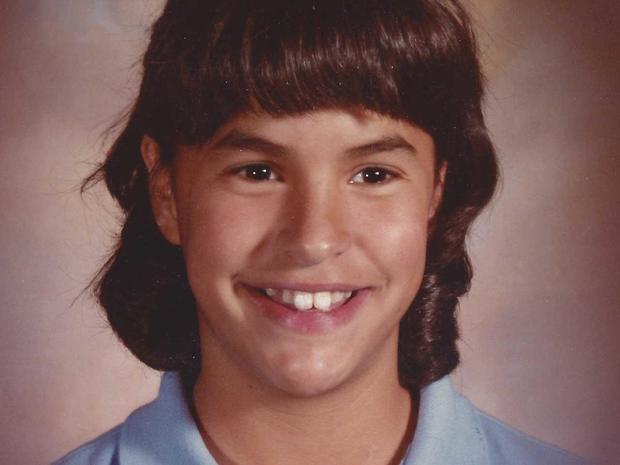
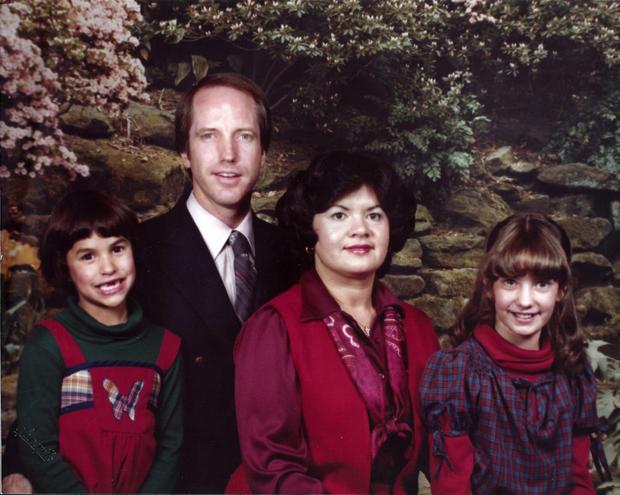
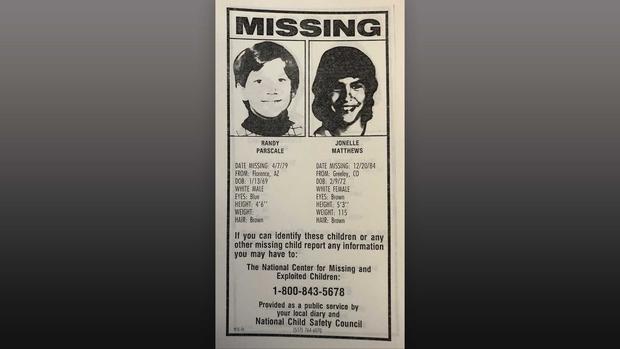
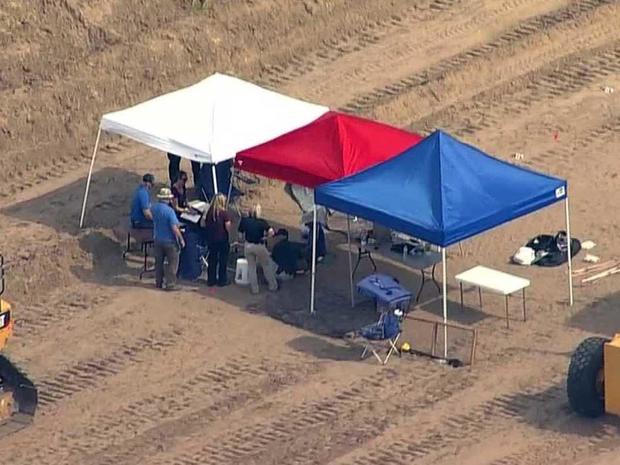
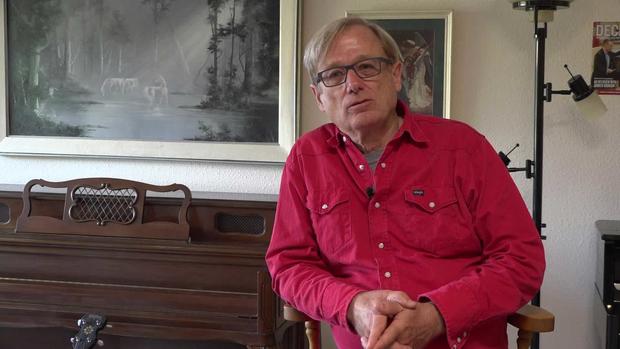


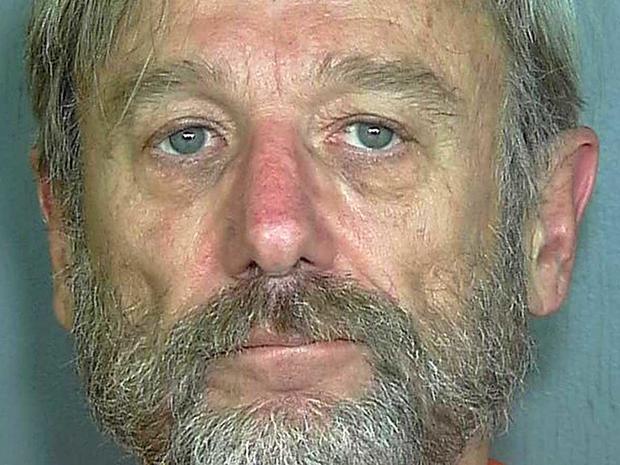

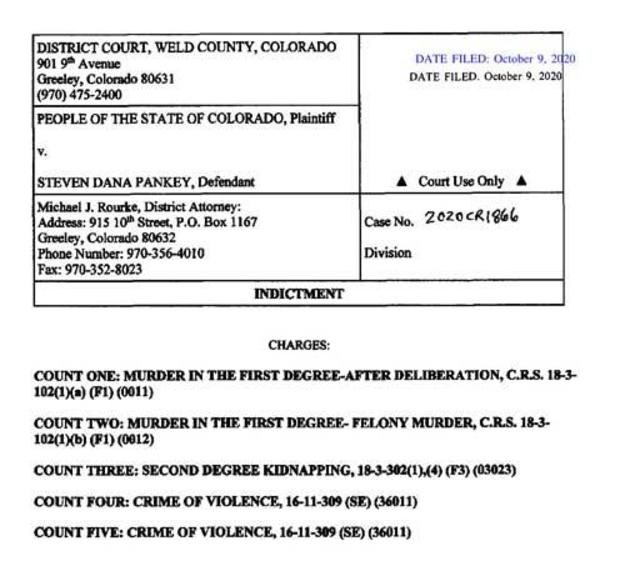
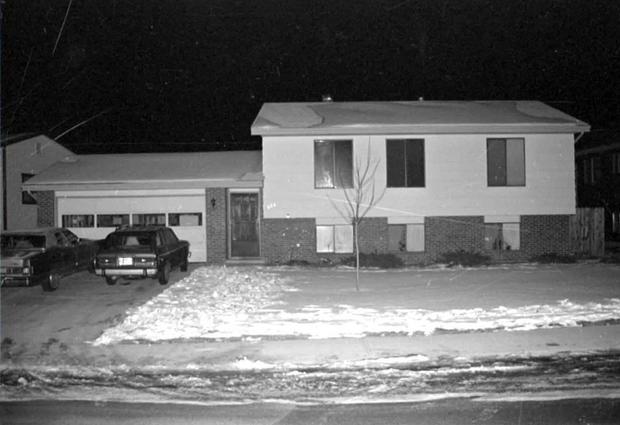

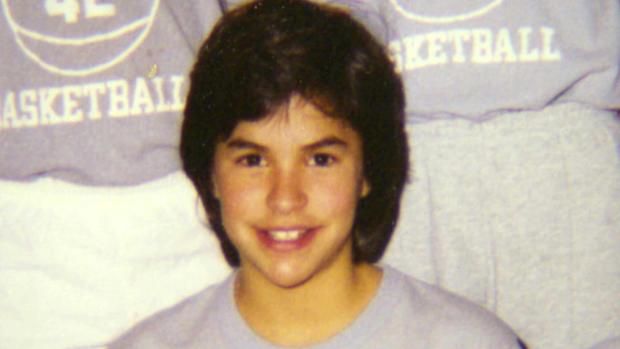















0 Response to "Jonelle Matthews case: Steven Pankey, former political candidate, inserts himself into the case of a missing girl and ends up a murder suspect - CBS News"
Post a Comment